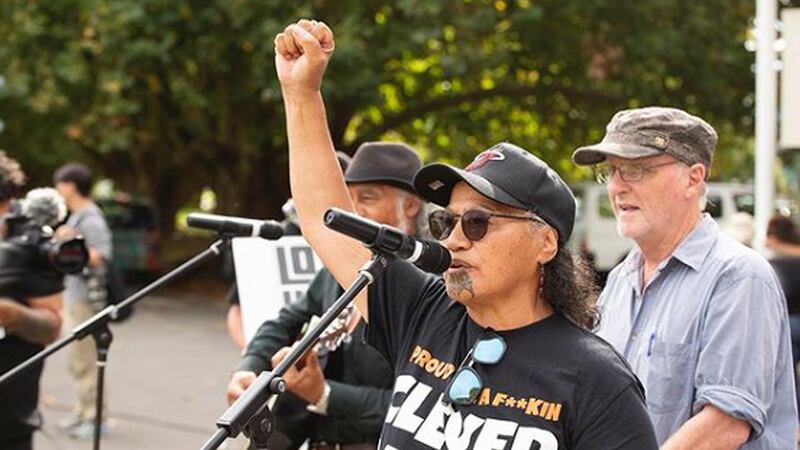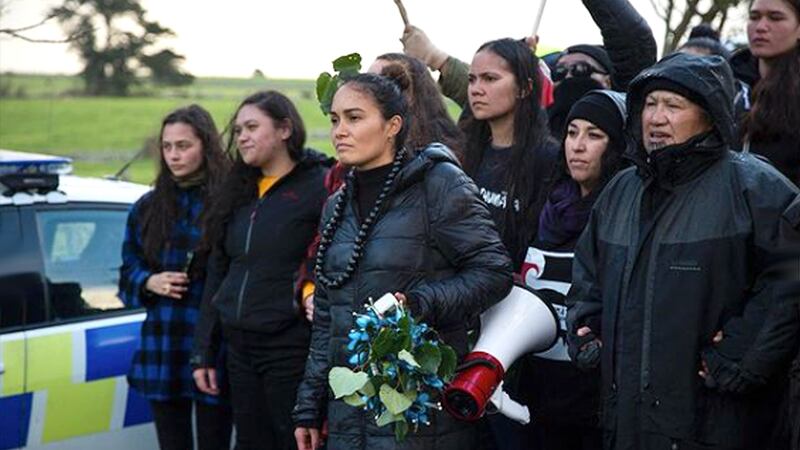Social justice party the Polynesian Panthers have honoured the late Miriama Rauhihi Ness for dedicating her life to serving and supporting the marginalised, the poor, and those discriminated against because of the colour of their skin.
Rauhihi Ness, of Ngāti Whakatere and Ngāti Taki Hiku, died on Monday after being diagnosed with cancer only weeks ago. She had been a member of the Polynesian Panthers Party since the early 1970s.
Polynesian Panthers member and Associate Professor of Pacific studies at the University of Auckland, Lupematasila Misatauveve Dr Melani Anae, first met Miriama as a teenager.
“We were a group of 16 to 19-year-olds who absolutely wanted to stamp out the racism that we were experiencing in Ponsonby, Auckland, which at the time was a ghetto. So we formed a group and our platform was basically three things; to alienate all forms of racism, to celebrate our mana Pacifika and to educate, to liberate and so this was the scene when I first met Ama," Anae says.
“We were being harassed by the police just walking down Ponsonby Road. If you had an afro and an LA shirt on, you’d be picked on by the police so, as young kids, we had been totally angry and we wanted change. We couldn’t tell our parents. Our parents couldn’t help because they were busy working in the factories and putting a roof over our heads and putting food on the table so we as young people knew we had to do something ourselves.”
Hardships experienced by te ao Māori
Polynesian Panthers member Fuimaono Norman Tuiasau also remembered Rauhihi Ness for introducing the Polynesian Panthers to te ao Māori, the hardships that Māori had suffered and the vitality of Māori culture, says Anae.
“She talked about the sacking of Parihaka and the lasting hurt felt by many generations of dispossessed Taranaki people. She was angry at the broken promises made under the Treaty of Waitangi, then she organised us to protest at Waitangi in the early 1970s.”
Rauhihi Ness was also one of the key organisers of the land march led by Dame Whina Cooper in 1975, where she was responsible for the march’s logistics.
“She organised the Polynesian Panthers to join the hikoi in 1975. She talked about the horrors of the Vietnam war, especially when New Zealand sent troops to fight there, but more Māori and Pacific soldiers were being killed compared to Pālagi soldiers. It was very personal for her."

Miriama Rauhihi Ness / Source: File
Early life
Miriama was the former wife of musician Tigilau Ness and mother of singer Che Fu. She was born in 1951 and grew up in the small settlement of Shannon, 28km southwest of Palmerston North.
In the 1970s the 18-year-old moved to Ponsonby to work in a sewing factory. It was here where her fight for injustice began. Miriama was elected union delegate and just six months into her job, had her workmates out on strike because Māori and Pacific Island workers were made to work through their designated breaks for no pay. Due to her dogged determination and the camaraderie of her peers, the workers came out on top.
Miriama’s work for the Polynesian Panthers involved running the headquarters while filtering all the calls from people who needed help in the community.
Anae says when she first met Rauhihi Ness, "Miriama was a shy girl but, man, she was fiery.”
“She was really strong and tūturu in her mission to work and protest against all of the injustices against Māori and the Pacifika so when she joined the Panthers she became our first fulltime community worker not long after that and she became our first sister to hold the portfolio as one of our ministers of culture, Anae says.
“She did a lot of frontline work as well. She did so much. She was a true frontline warrior and nothing could stop her.”




